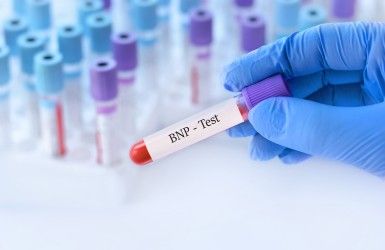General Health
Have You Ever Had Unprotected Sex Or A Blood Transfusion? Check What An HBsAg Test Explains
6 min read
By Apollo 24|7, Published on - 29 May 2025
Share this article
0
0 like

Health risks often go unnoticed until symptoms appear. But certain infections, like Hepatitis B, can remain silent for years, affecting the liver without obvious signs. If you’ve ever had unprotected sex, received a blood transfusion, or undergone medical procedures in unsanitary conditions, you could be at risk of Hepatitis B infection.
One of the most essential diagnostic tests for detecting Hepatitis B is the HBsAg test (Hepatitis B surface antigen test). It helps determine whether a person has an active infection or is a carrier of the virus. In this article, we’ll explore the importance of the HBsAg test, how it works, what the results mean, and how to protect yourself from Hepatitis B.
What Is Hepatitis B?
Hepatitis B is a viral infection that targets the liver, causing both acute and chronic diseases. It is caused by the Hepatitis B Virus (HBV) and spreads through blood and bodily fluids.
How Does Hepatitis B Spread?
You may contract Hepatitis B through:
- Unprotected sex – Contact with infected bodily fluids.
- Blood transfusions – Receiving contaminated blood (though rare due to modern screening).
- Sharing needles – Including drug use, tattooing, or medical procedures in non-sterile settings.
- Mother-to-child transmission – During childbirth, if the mother is infected.
- Close contact with open wounds or cuts – Especially in healthcare settings or households.
Some individuals clear the virus on their own, while others develop chronic Hepatitis B, increasing their risk of liver damage, cirrhosis, and liver cancer.
What Is the HBsAg Test?
The Hepatitis B surface antigen (HBsAg) test is a blood test designed to detect the presence of the Hepatitis B virus (HBV) in the body. It plays a crucial role in identifying active infections and determining whether an individual is a carrier of the virus, meaning they can unknowingly spread it to others.
This test is essential because Hepatitis B can remain silent for years, causing liver damage without noticeable symptoms.
Why Is the HBsAg Test Important?
Many people who have Hepatitis B don’t feel sick and might not even know they’re carrying the virus. That’s where the HBsAg test becomes so important. It helps detect Hepatitis B early, even when there are no symptoms, so you can take steps to protect your health and the people around you. Here’s why this test matters:
- It helps catch the virus early, before it causes serious damage: Hepatitis B can quietly damage your liver over time. Left untreated, it can lead to liver scarring (cirrhosis), liver failure, or even liver cancer. The HBsAg test lets doctors spot the infection early and take action before it becomes a bigger problem.
- It shows whether you’re contagious: A positive HBsAg test means the virus is active in your blood, and you can pass it on to others through blood or body fluids. Knowing your status helps you take precautions to avoid unknowingly infecting your partner, family members, or others.
- It guides your treatment plan: If you’re living with chronic Hepatitis B, this test helps your doctor monitor your condition over time. Depending on the results, they may recommend regular check-ups, liver tests, or antiviral medication to keep the virus under control.
- It protects people at higher risk: If you’re a healthcare worker, pregnant, or have had unprotected sex, shared needles, or received blood transfusions in the past, getting tested is smart. If the test is negative, you may still need the Hepatitis B vaccine for protection.
- It helps stop the spread: When people know they have Hepatitis B, they can take steps to prevent spreading it to others. Testing makes that possible. It’s one of the most powerful tools we have to reduce infections in families, workplaces, and communities.
Have more questions?
How to Prepare for an HBsAg Test
- Preparing for an HBsAg test is simple and requires minimal effort:
- No fasting is needed; you can eat and drink normally unless instructed otherwise.
- Continue taking medications as usual, but inform your doctor about any prescriptions, especially if you're on antivirals or immunosuppressants.
- Share your medical history, including prior hepatitis B vaccination, liver conditions, or recent exposure risks.
- Wear loose clothing with sleeves that roll up easily for the blood draw.
How Is the HBsAg Test Performed?
The HBsAg test procedure is a simple and quick blood test used to detect Hepatitis B surface antigen (HBsAg) in the bloodstream. Here’s what you can expect during the test:
- Blood Sample Collection: A healthcare provider will collect a blood sample, usually from a vein in your arm. This process is similar to other standard blood tests and typically takes just a few minutes. You may feel a slight pinch when the needle is inserted.
- Laboratory Analysis: Once collected, the blood sample is sent to a laboratory for analysis. In the lab, technicians will mix the blood with specific reagents that react if the Hepatitis B surface antigen (HBsAg) is present, confirming an active infection.
- Results: Results from the HBsAg test are usually available within a few hours to a few days, depending on the laboratory's processing time.
Understanding HBsAg Test Results
The presence of HBsAg in the blood indicates an active infection, meaning the person may be contagious.
Interpreting HBsAg Test Results
- HBsAg Negative: No active Hepatitis B infection.
- HBsAg Positive: Indicates an active or chronic Hepatitis B infection.
Doctors may also check other Hepatitis B markers, such as HBsAb (Hepatitis B surface antibody), to assess immunity or past infection.
How Elevated HBsAg Levels Are Managed
If your HBsAg test is positive, it means the Hepatitis B virus (HBV) is active in your body. While this can be concerning, it doesn’t always indicate severe illness. The next step is determining whether the infection is acute (short-term) or chronic (long-term) and deciding on appropriate management. Key Steps in Managing Elevated HBsAg Levels include:
- Further Testing – Your doctor may order additional tests to assess the infection:
- HBV DNA test – Measures viral load in the blood.
- HBeAg test – Determines how actively the virus is replicating.
- Liver function tests – Evaluate liver health and detect inflammation or damage.
- Regular Monitoring – If liver function is stable and viral levels are low, routine check-ups every few months may be recommended to track disease progression.
- Antiviral Medication – For chronic Hepatitis B, antiviral drugs may be prescribed to control the infection and prevent liver complications.
- Lifestyle Support – Patients are advised to:
Avoid alcohol to reduce liver strain.
Follow a liver-friendly diet to support overall health.
- Consider Hepatitis A vaccination to prevent co-infection.
- Take precautions to prevent spreading the virus to others.
Conclusion
If you've had unprotected sex, a blood transfusion, or other potential exposure to Hepatitis B, getting an HBsAg (Hepatitis B Surface Antigen) test is a crucial step in protecting your health. This test detects an active infection, allowing for early diagnosis, treatment, and prevention of complications. Since Hepatitis B can progress silently, timely testing helps safeguard both your well-being and the health of those around you.
General Health
Frequently Asked Questions
What does a positive HBsAg test mean?
What does a positive HBsAg test mean?
Can I have Hepatitis B without symptoms?
Can I have Hepatitis B without symptoms?
How is Hepatitis B spread?
How is Hepatitis B spread?
Can Hepatitis B be cured?
Can Hepatitis B be cured?
Who should get tested for HBsAg?
Who should get tested for HBsAg?
Leave Comment
Recommended for you

General Health
Most Common Sleeping Habits: Identify The Good & Bad Ones
Getting enough sleep for at least 7-8 hours daily is very important to ensure good health. The quality and amount of sleep you get depends on a myriad of factors, of which the most important one is your sleeping habits.

General Health
Fish Oil Vs Plant-Based Omega-3: Which Is Better?
Discover the pros and cons of fish oil and plant-based Omega-3 sources. Make informed dietary decisions for your health and well-being.
.jpg?tr=q-80)
General Health
Monitoring Pregnancy or Cancer Risk? An AFP Test Helps Detect Foetal or Tumour Abnormalities
Monitoring pregnancy or cancer risk? An AFP test helps detect foetal abnormalities and certain tumours early. Learn what the test reveals and when it's recommended
Subscribe
Sign up for our free Health Library Daily Newsletter
Get doctor-approved health tips, news, and more.
Visual Stories

Science-backed Home Remedies for Burns and Blisters
Tap to continue exploring
Recommended for you

General Health
Most Common Sleeping Habits: Identify The Good & Bad Ones
Getting enough sleep for at least 7-8 hours daily is very important to ensure good health. The quality and amount of sleep you get depends on a myriad of factors, of which the most important one is your sleeping habits.

General Health
Fish Oil Vs Plant-Based Omega-3: Which Is Better?
Discover the pros and cons of fish oil and plant-based Omega-3 sources. Make informed dietary decisions for your health and well-being.
.jpg?tr=q-80)
General Health
Monitoring Pregnancy or Cancer Risk? An AFP Test Helps Detect Foetal or Tumour Abnormalities
Monitoring pregnancy or cancer risk? An AFP test helps detect foetal abnormalities and certain tumours early. Learn what the test reveals and when it's recommended